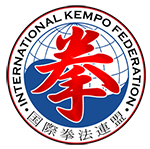IKF CODE OF PRACTICE FOR DEALING WITH CONFLICTS OF INTEREST
The aim of this Policy is to ensure that all directors and employees of IKF identify and manage any potential conflicts of interest so as not to damage the reputation and standing the Federation.
IKF expects its staff and Board Members to recognise and avoid activities or investments which involve or might appear to involve a conflict of interest. All employees and Board Members shall be expected to observe the guidelines described within this Policy.
Potential Conflicts:
Potential conflicts may occur in different forms:
- Where an individual is in a position to receive a direct financial gain from their involvement in the Federation.
- Where an individual is in a position to receive an indirect financial gain from their involvement in the Federation.
- Where an individual is in a position to influence a commercial contract for any development work funded by the Federation.
- Where an individual is in a position to influence the appointment of staff who will work for the Federation.
- Where an individual is in a position to influence the accounting process.
- Where an individual has membership in, or involvement with, a particular KEMPO club who may receive support from the Federation.
- Where an individual has involvement with a particular KEMPO competitor who may receive support from the Federation.
- Where an individual has an involvement with any other potential partner of the Federation.
- Where the employee or director of the Federation is also employed by another organisation.
- Where an employee or director of the Federation is acting for other organisations in a self-employed/professional capacity In order to ensure that any potential conflicts are identified and declared as early as possible, a register of interests will be developed and maintained by the Chief Executive Officer and used for reference when any potential conflicts may occur.
Procedure for Managing Conflicts
The guiding principle for individuals in situations with the potential to cause conflict is to declare an interest and act at all times in good faith, in the best interest of and for the benefit of the Federation and its funding partners.
Conflicts are perfectly manageable if members of the Federation assume a collective responsibility for the effective delivery of the sport of KEMPO. This collective responsibility will always override individual interest.
To avoid and or deal with serious conflicts of interest it is helpful to have a simple, practical and usable Code of Practice.
IKF has adopted the following procedure as its Code of Practice:
- It is the responsibility of all Board Members, staff and volunteer members in positions of responsibility to declare to the Chief Executive, or other nominated party, in advance of any direct or indirect interest which may arise in respect any of the areas as outlined in the bullet points previously – if they may become a party to the process.
- All Board Members, staff and volunteer members in positions of responsibility should declare new interests to the Chief Executive, or other nominated party, at the earliest opportunity.
- The Chief Executive maintains a register of the declared interests of Board Members, staff and Federation members in positions of responsibility, detailing the nature and extent of such an interest. Conflict of Interest Register forms are available from the Chief Executive, or other nominated party.
- Where a conflict of interest is declared, the relevant Board member, staff or Federation member in a position of responsibility should not influence any decision on the matter. They should abstain from any vote and may wish to consider withdrawing from a meeting room whilst the relevant matter is being discussed. This should be recorded in the minutes of the meeting.
- No contract or other award should be made to a Board Member, Staff or Federation member in a position of responsibility, relating to a matter in which an interest has been declared without prior approval of the funding partners.
- Whenever members are unsure of the seriousness of a potential conflict of interest, they should err on the side of caution.
- Staff should notify the Federation of any other employment or self-employment upon appointment to the Federation or when other employment is offered or undertaken.
All Directors, employees and Federation Members will adhere to the above guidelines or face appropriate disciplinary procedures.
It is the duty of every Federation stakeholder to ensure that no conflicts of interest are allowed to take place, and any suspected activity should be reported to the Chief Executive or designated representative at the earliest possible opportunity.
Any person who has a conflict of loyalties should declare this and it should be included in the register of interests. They should also declare the interest at the beginning of the meeting at which an issue is to be discussed that is subject to the conflict and should take no further part in the discussions on the issue. This will ensure transparency and avoid any accusations of impropriety which would be damageable to the reputation of the Federation.
RELATED PARTIES TRANSACTIONS: GUIDANCE FOR COMPLETION
Board members and senior staff are required to complete the Related Parties Transactions form and list their interests where there is a controlling interest. It can be ignored if the interest is one of normal employment, e.g:
- My wife is an employee of such and such a company – this can be ignored.
- My sister works in local government – this can be ignored.
Board members should:
- Consider any company where they own 20% of the share capital.
- Any business they control such as a coaching or consultancy company.
- Any KEMPO club, promotion or business where they exert significant influence as say Head Coach/President/Other senior official.
- They should include this information for their partner/spouse.
- Their adult children and the partners of their adult children.
- Any working parents.
- Siblings (include in the partner/spouse column if applicable).
AUDITING
Auditors to obtain an understanding of related party relationships and related party transactions, and to specifically inquire the following of management:
(a) The identity of each entity’s related parties, including changes from the prior period.
(b) The nature of the relationships between each entity and these related parties; and
(c) Whether each entity entered any transactions with these related parties during the period and, if so, the type and purpose of the transactions.
We are also required to inquire of management and others within each entity, the controls if any which management has established to:
(a) Identify, account for, and disclose related party relationships and transactions.
(b) Authorise and approve significant transactions and arrangements with related parties; and
(c) Authorise and approve significant transactions and arrangements outside the normal course of business.
Definition of related parties for the purposes of auditing are:
(1) A related party as defined in the financial reporting framework; or
(2) Where the applicable financial reporting framework establishes minimal or no party requirements:
(a) A person or other entity that has control or significant influence, directly or indirectly through one or more intermediaries, or the reporting entity.
(b) Another entity over which the reporting entity has control or significant influence, directly or indirectly through one of more intermediaries; or
(c) Another entity that is under common control with the reporting entity through having:
(I) Common controlling ownership;
(II) Owners who are close family members; or
(III) Common key management
Definition of Related Parties in the Financial Reporting Framework:
- a) an individual or entity that controls, is controlled by, or is under common control with, the entity (this includes parents, subsidiaries and fellow subsidiaries);
- b) an individual or entity that has an interest in the entity that gives it significant influence over the or has joint control over the entity;
- c) an associate or joint venture of the entity;
- d) directors and key management personnel of the entity or its parent;
- e) a close family* member of any individual referred to above;
- f) an entity that is controlled, jointly controlled or significantly influenced by any individual referred to above;
- g) a pension scheme for the benefit of employees of the entity, or of any entity referred to above.
* Family members, or members of the same household, who may be expected to influence, or be influenced by, that person in their dealings with the entity. This would normally include a person’s spouse, parent, child, brother, sister and the spouse of any of these.
REQUIRED ACTIONS
You are required to disclose in each entity’s financial statements material transactions undertaken with related parties, subject to the specified exemptions which include emoluments in respect of services as an employee or director, and certain inter group transactions where consolidated accounts are prepared.
Given the above, the following should be considered:
1 – Your systems and procedures for capturing related party transactions, including the type and purpose of the transaction;
2 – How you make your Board members and senior management aware of who a related party is, and in particular, how wide it goes eg brother/sister in law;
3 – Documentation of the likely risk of your directors and senior management being able to influence a transaction eg the risk is greater for an executive director/senior management than for a NED;
4 – Your systems and controls for authorising and approving significant transactions and arrangements with related parties.
In considering the appropriate controls which may be required, you should consider the susceptibility of the financial statements to material misstatement due to fraud or error that could result from the entity’s related party relationships and transactions.

